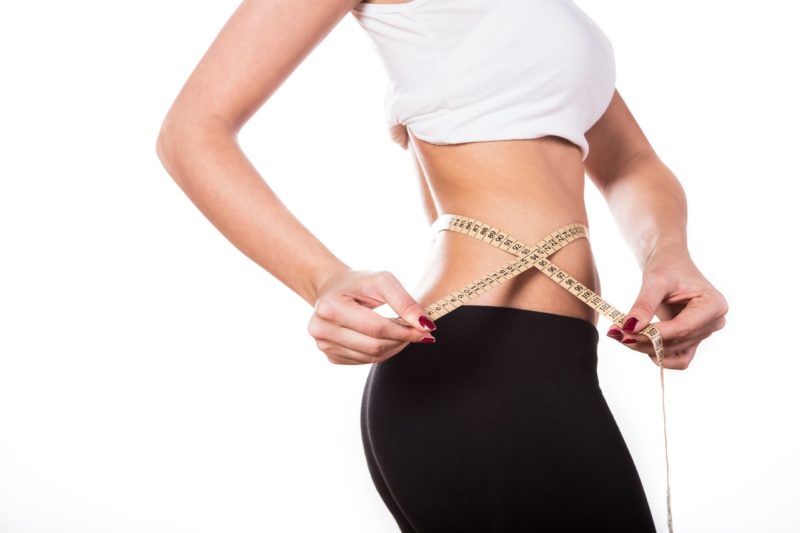
If you have noticed that your waistline has gotten bigger and you want to learn how to lose weight after a hysterectomy, we understand the urgency to shed those extra pounds and regain your confidence. Losing weight after 50 and hysterectomy can be challenging for many women, but it isn’t impossible. Let’s discover more information about weight gain after hysterectomy and what are the best ways to keep it off.
Weight Loss After Hysterectomy
A hysterectomy, the surgical removal of the uterus, can have a significant impact on hormone production, particularly when accompanied by the removal of the ovaries. This hormonal shift often leads to noticeable changes in weight.
Estrogen, the primary female hormone responsible for reproductive regulation, is closely linked to the organs within the female reproductive system, which are surgically removed during a hysterectomy. Consequently, the body’s hormone levels and balance are highly likely to undergo substantial shifts. This hormonal disruption can lead to various symptoms, including:
- Sleep disruption: When estrogen levels drop after a hysterectomy, it can disrupt sleep patterns for many women. This hormonal change often leads to difficulties in sleeping, night sweats, and shorter sleep cycles.
- Reduced energy: After a hysterectomy, women often experience a decline in energy levels, primarily due to two factors: the loss of estrogen and disrupted sleep patterns. The decrease in estrogen and sleep disturbances can contribute to reduced energy levels. As a result, women may engage in less physical activity and exercise less frequently, leading to weight gain.
- Slower metabolism. Poor sleep and less energy often precipitate a slowing of the metabolic processes, which can, in turn, lead to weight gain after undergoing a hysterectomy.
Does Hysterectomy Cause Weight Gain?
These three symptoms can make weight loss after hysterectomy challenging, and many women first begin to notice some extra pounds around the waistline. In addition to the visible weight gain around the waistline, it’s important to consider the potential accumulation of internal fat around organs such as the liver and heart. This visceral fat poses risks for conditions such as heart disease and diabetes.
Interestingly, this weight gain usually happens without any major changes in lifestyle or habits, which can feel really unjust. For a visual representation, you can refer to a diagram available on the Mayo Clinic website.
Weight gain after hysterectomy can be frustrating when you start to put on extra pounds. Don’t let frustration hold you back! At Nava Health, we have the solutions you need to shed those unwanted pounds. If you want personalized guidance and support in your weight loss journey, we encourage you to schedule an online appointment today.
Now that you understand the reasons behind weight gain after a hysterectomy procedure, let’s explore some top recommendations you can implement right away to regain your health and vitality.
How to Lose Weight After Total Hysterectomy
1. Improve Your Diet
Eating a balanced diet can help you maintain a healthy body weight which is vital for weight loss because it helps you control how many calories you eat. The key is to eat less than what you burn.
You can do this by including foods in your diet that have lots of nutrients and are good for you, like whole grains, fruits, vegetables, and lean proteins (such as chicken or fish). On the other hand, you should try to avoid or limit foods that have a lot of calories and are processed, as these can make it harder for you to lose weight.
2. Exercise Regularly
Regular exercise is vital to boosting your metabolism, which is the rate at which your body burns calories. When you engage in cardiovascular activities like running or swimming, as well as strength training exercises, it helps increase your metabolic rate. This means your body becomes more efficient at burning calories, ultimately leading to weight loss. So, incorporating both types of exercise into your routine can be beneficial for achieving your weight loss goals.
3. Stress Management
Practicing mindfulness for stress management can be a valuable approach to losing weight after a hysterectomy. Mindfulness involves being fully present and non-judgmentally aware of your thoughts, emotions, and bodily sensations. By incorporating mindfulness into your daily routine, you can effectively manage stress, often leading to emotional eating and weight gain.
When you practice mindfulness, you become more attuned to your body’s signals and can identify stress triggers. By recognizing these triggers, you can respond to stress in healthier ways, rather than turning to food for comfort. Mindfulness techniques such as deep breathing exercises, meditation, or engaging in activities that bring you joy and relaxation can help alleviate stress and reduce the likelihood of stress-related weight gain. By managing stress through mindfulness, you can establish a healthier relationship with food and make more conscious choices, ultimately supporting your weight loss goals.
4. Hormone Therapy
After undergoing a hysterectomy, hormone therapy can be highly beneficial in mitigating the impacts of low estrogen. Bioidentical hormone replacement therapy (BHRT) stands out from conventional hormone replacement therapy because it is tailored specifically to your needs. As a result, BHRT is more proficient in replenishing your body’s natural hormones and aiding your journey toward reclaiming your previous state of well-being.
Achieving Weight Loss After a Hysterectomy with the Help of BHRT
Discover the transformative power of natural hormone replacement at Nava Health and Vitality Center. Whether you’ve undergone a total hysterectomy, oophorectomy or are navigating menopause or perimenopause, we’re here to guide you on your journey to hormonal balance and overall well-being. Our customized Bioidentical Hormone Replacement Therapy (BHRT) is designed to address your unique needs and revitalize your body.
After you reach the age of 40 or so, hormones and weight can go through rapid changes and fluctuations that leave you whirling. Hormone therapy is a game-changer, offering effective support for weight management during this transformative phase of life. If you’re concerned about weight gain after hysterectomy and its impact on your overall health, consider the benefits of hormone therapy—it could make all the difference.
Rest assured, our experienced medical professionals understand the intricacies of hormone therapy for menopause and natural aging. At Nava, we take a holistic approach to your wellness, focusing on preventing, restoring, and rejuvenating your health.
Take the first step towards reclaiming your vitality, and book your appointment with us today.

A Medical Director, and one of the first physicians to join the Nava Health & Vitality Center, Dr. Douglas Lord has made significant contributions to our Center and its founding principles. Dr. Lord has helped develop and implement the Nava Method™—Nava’s proprietary approach to total body wellness. He has also been instrumental in liaising with other expert practitioners to successfully implement Nava’s range of therapies, treatments, and products.
